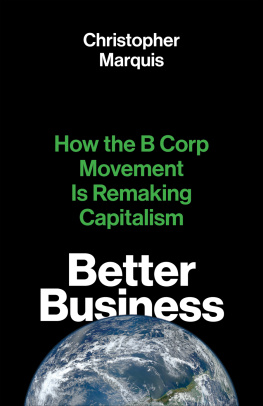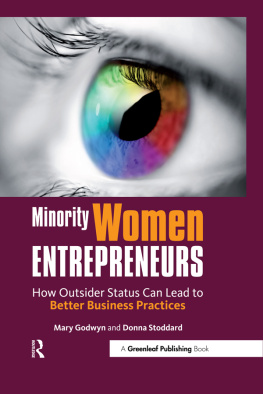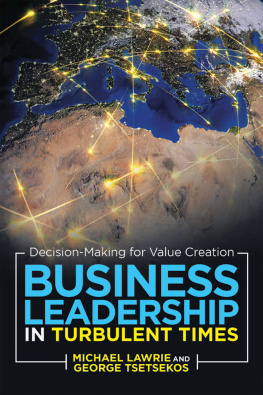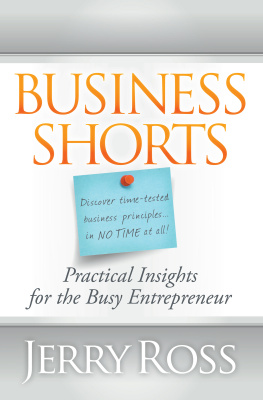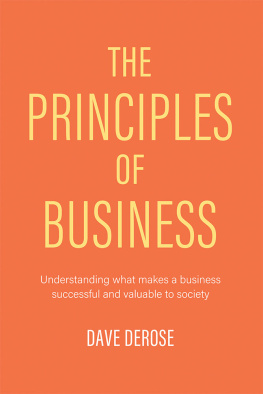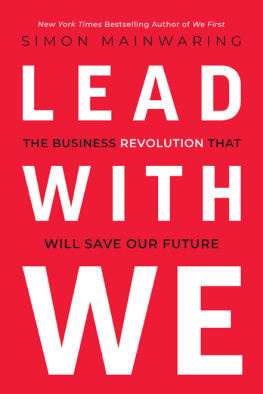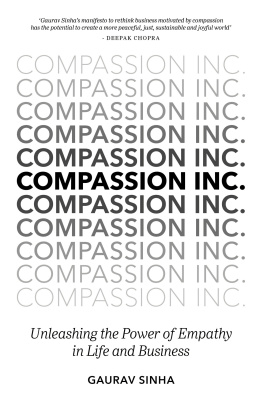Better Business

Published with assistance from the foundation established in memory of Amasa Stone Mather of the Class of 1907, Yale College
Copyright Christopher Marquis 2020.
All rights reserved.
This book may not be reproduced, in whole or in part, including illustrations, in any form (beyond that copying permitted by Sections 107 and 108 of the U.S. Copyright Law and except by reviewers for the public press), without written permission from the publishers.
Yale University Press books may be purchased in quantity for educa-tional, business, or promotional use. For information, please e-mail (U.K. office).
Set in Gotham and Adobe Garamond types by IDS Infotech Ltd.
Printed in the United States of America.
Library of Congress Control Number: 2020933181
ISBN 978-0-300-24715-2 (hardcover : alk. paper)
A catalogue record for this book is available from the British Library.
This paper meets the requirements of ANSI/NISO Z39.48-1992 (Permanence of Paper).
10 9 8 7 6 5 4 3 2 1
For Li Ying
Contents
Preface
The B Corp movement is the most important social movement youve never heard of.
If you care about rising inequality and decreasing economic mobility, the climate crisis, the coming soil and water crisis, and the political crisis of tribalism, then you should care about the B Corp movement. If you care about long-term economic growth as well as the future of high-quality jobs and work itself in an age of mass automation, then you need to know more about it.
Founded by a nonprofit called B Lab, the B Corp movement is focused on creating a new kind of company that has a triple bottom linepeople, planet, and profitsbaked into its DNA. At the center of this work is a rigorous assessment whereby companies performance is judged not just on earnings but on contribution to society and the environment. Thousands of companies around the globe have undergone this assessment. These B Corporations take responsibility for how they affect every one of their stakeholders, not just those who own shares.
Over the last fifteen years, as a professor of business administration at Harvard and Cornell, I have engaged directly with the next generation of business and civic leaders, the people who will shape the economy of tomorrow. At Harvard Business School (HBS), I taught courses on social innovation and institutional change. When I was out giving talks or consulting with companies, I would frequently be asked to name the most impressive example of business innovation I had seen. I always had a few choice answers, things that had recently caught my interest or impressed me. But since 2009, my answer to this question has consistently been the B Corp movement.
At first most of the people I talked to would reply, Huh? Now I am more likely to get nods of recognition. The B Corp movement is picking up steam, and business leaders, particularly those concerned about sustainability, are taking notice. Firms in the food and beverage industry might have heard that the Paris-based multinational food products company Danone committed to becoming a B Corp. In the apparel world, well-known brands like Patagonia and EILEEN FISHER have long been certified B Corps and active supporters of the movement. But the full scope of the movement and its potential impact are still not fully appreciated. Most business leaders still regard B Corp companies as occupying a niche at the fringe of their industriesas cute social enterprises that could never truly succeed.
Those assumptions are wrongthe B Corp movement has grown exponentially in just its first decade, and I believe that it and associated ideas are poised to be a catalyst for reforming our capitalist economy. To understand this shift, we need to have a systematic understanding of the movements breadth and scope, including its dynamics and history. The stories of B Corporations in this book illustrate how and why their certification can make a fundamental difference to their business operations and the future.
But its important to note that the movement is about much more than the number of certified B Corporations. In the last decade, the team at B Lab has created innovative tools for assessing companies and built networks to encourage the growth of the movement. In addition to Danone, B Lab has grabbed the attention of multinational corporations such as Unilever, Procter & Gamble, Nestl, and Gap, as well as many of the most innovative companies founded in the last decade, including Kickstarter, Allbirds, Casper, and Bombas. In interacting with hundreds of executives at scores of social businesses like these, I have found that they are spearheading a social movement: they are interested in promoting not just their own business ideas but the broader notion of creating businesses that are better for all stakeholders.
B Lab has also crafted a legal innovation called the benefit corporation that places social benefits and the rights of workers, the community, and the environment on an equal footing with the financial interests of shareholders. Political figures on both sides of the party aisle have supported the passage of legislation that establishes benefit corporations in most U.S. states. This innovation is sweeping the globesimilar legislation has been passed in Italy, Colombia, Ecuador, and the Canadian province of British Columbia, and is under discussion in many other countries.
This book tracks the way all of these different pieces have come together to create an ongoing revolution.
My interest in the movement was sparked in the spring of 2009, when I was teaching a course at HBS on how large companies such as IBM, Goldman Sachs, and Timberland could be strategic in their corporate social responsibility (CSR) programs. One day a student commented that if we wanted to learn about true innovation in the area, we should not study the CSR programs of large companies but examine how social values can be more fundamentally embedded in a companys DNA. Unclear on what she meant, I asked her to elaborate and she described what a B Corp was and listed several certified B Corporations that I knew well, including Method Home Products, King Arthur Flour, and the Boston-based social investment pioneer Trillium Asset Management. I was a bit embarrassed that I had never heard of B Corps until that day, so I spent some time researching the movement. The information I found online reeled me in, but I still wanted to know more. I got in touch with the founders of B Lab, and in 2010 I published the first in-depth case study of their work.
Since then, my colleagues and I have researched and published more than fifty Harvard case studies on social innovation, increasingly focused on B Corporations and the movement they are creating. My earliest accounts of B Corporations were written before I had grasped the full breadth of the movement. In 2011, a student class project introduced me to sweetriotan all-natural, women-owned chocolate company with innovative supplier practices that produces delicious nibs, small pieces of crushed cacao beans covered in chocolate. When I visited the companys headquarters in Greenwich Village to interview its leaders, I was surprised to see a B Corp certificate hanging on the wall. A year later, a research assistants passion about Warby Parkers eyewear and its buy-one, give-one donation model convinced me that it was an important company to study. Again, a visit to its corporate headquarters revealed to me that Warby Parker was a certified B Corp (for reasons that I will describe later, it no longer is). Clearly my millennial students and researchers were seeing a bigger picture that had not yet come into focus for me.
Next page
